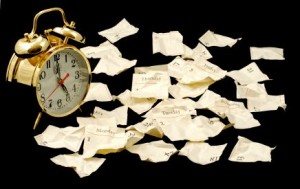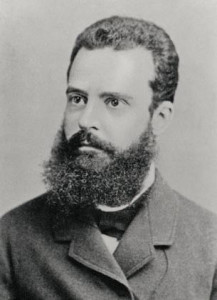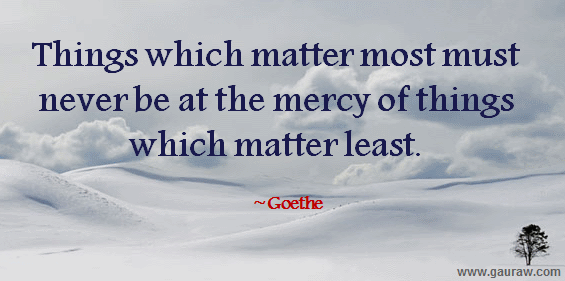Just Work Harder? Really?
I knew that that by just ‘working harder’ I would become more successful.
I hate to burst my own bubble, but this just isn’t true. Working twice as hard won’t turn you into the next Steve Jobs.
I learned that working harder, (in my case, roughly 3 times harder) than those around me didn’t make me much more productive. I learned this lesson the hard way.
Sure, I met some people who I wouldn’t have met otherwise. Yes, I got some pretty cool gadgets along the way that I was only able to acquire by grinding for a couple days. And okay, I’ve made a couple connections that might help me get an international job.
But even with all this, there was really only one big take away from my year of going to sleep at 2:00 AM and waking up at 6:30 AM every morning.
The sheer insanity of what I was doing!
I worked hard, and have some results to show for it. But more importantly, I learned that just planning more tasks into my schedule (cutting out sleep and friends in the process) didn’t increase my productivity by that much.
I learned this by taking my belief (that just doing more tasks would lead to being more successful) to its utmost extreme. One Sunday, I planned out literally every hour of the following seven days. I knew where I had to be Tuesday at 7PM, Wednesday at 11:30PM, and Thursday at 7:30AM.
If I wasn’t studying Organic Chemistry at 7PM on Tuesday, I would be getting behind schedule. If I wasn’t falling asleep exactly at 11:30 PM on Wednesday, I wouldn’t get enough sleep before my 7:30 wake up routine (reading books, email, working out) the next morning.
If I even paused to think about what I was doing, I was getting behind and had to get back to some kind of work.
Keeping to this schedule was just…. insanity. It was also impossible. One little unexpected event and my entire week would be thrown out of whack. Inevitably, something came up.
I needed to do one simple thing, pay rent for that semester of classes, and it had to be done by Wednesday. The crazyness was that every second of my week was already allotted for. I didn’t have the 30 minutes necessary to get this done! Luckily, I was able to finish an essay earlier than expected and pay the bills, but I saw how by filling my schedule to the max, I had condemned myself to a week of insane juggling,
So….. Did I see any amazing results from this week?
Did I get 5 times more done than I expected?
The sad truth is that I didn’t. I had set myself a plethora of tasks to complete, but nearly none of them had any long term effect on my life. The speaking events I went to I hardly remember. With no time to relax, I was stressed out all week. Inevitably, my evening tasks took longer than expected and cut my sleep hours down, making me easily irritable. Even the classes I studied for didn’t end up teaching me anything I would use later on in my career.
Where did I go wrong? I was working way harder than everyone else, so why wasn’t my life improving?
The answer is very simple.
Though I was taking massive action, I hadn’t done my homework beforehand. Even though I didn’t know it, I could have gotten much better results with much less stress and with much more free time in between.
My mistake was that I hadn’t taken the time to choose the right tasks before jumping into action. I had quickly looked at the week ahead, and thrown in a large number of mediocre jobs that I hadn’t taken the proper perspective on.
Was it really worth my time to travel half way across Boston to go to a random networking event? The lasting result of visiting this event shows me that it wasn’t. Was working on my side hustle (teaching a class at my university) really worth my time? In retrospect it never went anywhere. So no. Today I see only marginal benefits from all the time I put into preparing and teaching that class.
I should have looked to a man named Vilfredo Pareto for advice before starting this week. Pareto coined a term that is now named after him; the Pareto Principle.
This principle saysthat of all the things you do throughout your day, only 20% really matter. These will be responsible for 80% of your results.
The other 80% of the tasks you complete will only account for 20% of your results. This means that the way to truly get better results is not to do more, but to discover what tasks are the most important and then do those. This principle has been proven again and again, and is applicable in business, sports, as well and nearly all other areas of life.
If you can discover which 20% of the tasks you do are the most important, then you can literally do one-fifth the work of someone who has never analyzed what they do and still get more done.
The real work you need to do to increase your productivity begins before you start the individual tasks themselves. The real work is mental. You need to be able to think about what tasks are before you, pick the best, and discard the less valuable ones. If you don’t take this small amount of time to discover and eliminate low importance tasks they will begin to crowd out the tasks that really matter.
If you want to eliminate unimportant time vacuums from your life, the steps are relatively simple.
1. Write out a list of every task you find yourself doing throughout a week.
2. Ask “If I could only do one of these tasks, which would it be?”
3. Ask this question again if you could only do two things, and then three things.
These tasks that you identified should be the most important tasks for you to achieve. Pareto called them the ‘vital few.’ Recognize that these tasks alone most likely are the reason for a great deal of the results you are able to achieve. Focus on these tasks in order to become the most efficient you can while working.


